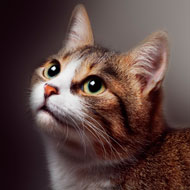One in four vets see cats poisoned with permethrin

PDSA vets see about 20 cases of permethrin poisoning in cats every month.
Pet product manufacturer Bob Martin has been commended by animal charities for deciding to remove on-animal flea treatments that contain permethrin from general sales.
Pet owners wishing to buy these products will therefore have to obtain them through a vet, pharmacist or other suitably qualified person.
International Cat Care (iCatCare) called the move “a great day for cats in the UK” and “a substantial step forward.” However, the charity says this is a global problem, so there is more work yet to be done.
According to the PDSA, thousands of pet owners are accidentally poisoning their cats by applying dog flea treatments containing the insecticide permethrin, which can be fatal if given to cats.
The charity's vets are seeing around 20 cases of accidental permethrin poisoning every month. With many cases going unreported, experts fear this may be the tip of the iceberg.
Senior PDSA vet Sean Wensley says a lack of owner awareness is to blame, with “devastating consequences.”
PDSA is now backing a campaign launched by iCatCare last year. It calls for a change in the licensing of all products containing permethrin, meaning they could only be dispensed by a suitably qualified person, who could give advice at the point of sale. It is thought this would stop owners mistakenly buying unsafe products online or from pet shops.
iCatCare's chief executive Claire Bessant says cat deaths through permethrin poisoning are “often simply down to mistakes at the point of purchase, with pet owners mixing up cat and dog products, or just unaware that you cannot use a dog treatment on a cat...
“The saddest thing of all is that cats are dying because owners are trying to do the right thing and treat their cats for fleas.”
A recent survey by iCatCare found more than one in four vets have seen a case of cat poisoning by permethrin in the first six months of this year. Around half said they saw a case last year.
The most common cause of poisoning was dog spot-on products being mistakenly used on cats. However, a number of cases were the result of a cat coming into close contact with a dog that had been recently treated.



 The RCVS has announced a new version of its 1CPD mobile app, with enhanced features for veterinary surgeons and veterinary nurses to record their continuing professional development.
The RCVS has announced a new version of its 1CPD mobile app, with enhanced features for veterinary surgeons and veterinary nurses to record their continuing professional development.